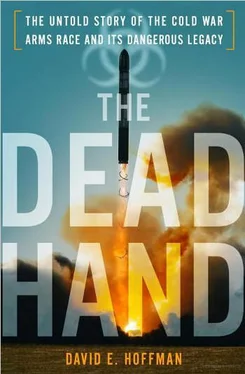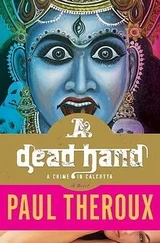At a Politburo meeting April 11, Gorbachev’s impatience was on full display. He was furious at the dreadful state of Soviet farming and at the food supply, which often spoiled in storage and transport. There were only enough warehouses for 26 percent of the fruit, vegetables and potatoes, and they were rotting; only a third of the storage facilities for produce had refrigeration. The loss of agricultural raw materials was running at 25 percent. As Chernyaev later lamented, any leader would see “the country was on the verge of collapse.” Gorbachev threatened the ministers that he would take away Kremlin privileges—an eatery and special food store—which allowed them to avoid exposure to the misery in most food shops. 6
Even in his first blunder, a campaign against alcohol abuse, Gorbachev showed his determination to save the country from itself. 7The campaign was widely ridiculed and eventually dropped, but Gorbachev knew, correctly, that alcoholism had become a scourge. Per capita, the amount of alcohol consumed was two and a half times greater than it had been under the tsars. Gorbachev recalled that the saddest part was that vodka helped fill the consumer goods deficit; there was nothing else for people to buy with their rubles. Chernyaev sensed right away the campaign was doomed. One day he stopped by a grocery. “Everyone there from the manager to the saleswoman is drunk. The anti-alcoholism law is nothing for them. Try to fire them. Who are you going to find to replace them?” 8
Less than two weeks after Gorbachev took power, two military men came to his office. Both held the rank of Marshal, the highest in the Soviet military. One was the unremarkable new defense minister, Sergei Sokolov, who had been appointed after Ustinov’s death. The other was Sergei Akhromeyev, chief of the General Staff. Lean and muscular, not very tall, with a strong chest like an athlete and a thin face, Akhromeyev carried himself very straight, was known as an exacting commander and rarely smiled. He had joined the Red Army at age seventeen, just before the outbreak of World War II, fought to lift the siege of Leningrad and later commanded a tank battalion in Ukraine. He ended the war as a major. His generation went into the war surprised and outgunned, fighting the Nazi tanks with only rifles and Molotov cocktails. After the war, they graduated from the military academies and devoted their lives to the belief, as Akhromeyev put it, that “everything the Soviet Union achieved in the post-war organization of Europe and the world must be protected.” 9Their determination was only strengthened by the development of nuclear weapons.
By contrast, Gorbachev was a boy when the Germans invaded. He never served as a soldier, nor in the military-industrial complex or the defense establishment. Nor was Gorbachev in thrall to the great designers and scientists who had built the missiles and warheads that turned the Soviet Union into a nuclear superpower. Gorbachev simply did not share the worldview that the generals so deeply cherished and fervently protected. He did not see military power as decisive in global competition; he realized economic power was more potent. “We are encircled not by invincible armies,” he later concluded, “but by superior economies.” 10
In the meeting with Sokolov and Akhromeyev, Gorbachev got his first look at the true size and scope of the Soviet defense machine, and it was enormous. As they finished, Gorbachev turned to Akhromeyev. “We begin to work together in difficult times,” he said. “I speak to you as a Communist. I know what I must do in the area of economics to correct the situation. I know where and what to do. But the area of defense is new for me. I count on your help.” Akhromeyev, who had been chief of the General Staff for only six months, and before that deputy chief, held sway over military policy and planning. He promised to give Gorbachev his help. 11
Gorbachev realized that the sprawling defense establishment—the Army, Navy, Air Force, Strategic Rocket Forces, Air Defense Forces and all the institutes, design bureaus and factories that supported them—were a monumental burden on the country. How the military-industrial complex functioned, how far it ranged and how much it cost were concealed by deep secrecy, what Gorbachev called the “closed zones.” 12But Gorbachev’s travels around the country had provided him with hints. “Defense spending was bleeding the other branches of the economy dry,” he recalled. “When I visited defense plants and agricultural production complexes, I was always struck by the same picture. The defense production workshop making modern tanks, for example, had the newest equipment. The one working for agriculture was making obsolete models of tractors on old-time conveyor belts.”
“Over the previous five-year plans, military spending had been growing twice as fast as national income. This Moloch was devouring everything that hard labor and strain produced… What made matters worse was the fact that it was impossible to analyze the problem. All the figures related to the military-industrial complex were classified. Even Politburo members didn’t have access to them.” 13
On the staff of the Central Committee, one man knew the secret inner workings of the military-industrial complex. Vitaly Katayev had the appearance of a thoughtful scientist or professor, with a long, angular face and wavy hair brushed straight back. As a teenager he loved to design model airplanes and ships. He spent two decades in aircraft and missile design and construction bureaus in Omsk and Ukraine, and took part in some of the largest missile projects of the Cold War before coming to the Central Committee headquarters in Moscow in 1974 to work on defense issues. In private, Katayev was a funny, quirky man who loved to sing and play musical instruments. 14But in his work at the Central Committee, he was very serious and precise. The Central Committee position was located in the heart of power, perhaps roughly equivalent to serving at the White House National Security Council. Katayev worked in the Defense Industry Department, later renamed just the Defense Department, which oversaw the military-industrial complex. Over many years, Katayev kept detailed records in large bound notebooks, often jotting down rows of numbers, drawing schematics of weapons systems, recording major decisions and debates. His notebooks and writings, revealed here for the first time, offer an unparalleled window on the inner workings of the Soviet military-industrial colossus. 15Katayev described it once as “a sort of Soviet Texas—everything existed on a grand scale.” But Katayev knew it was not as fearsome as often portrayed. The defense establishment was run in a way that was extremely random, ad hoc, and subjective. Katayev knew that Soviet central planning did not work. Weapons were not built because they were needed, but rather because of the power of vested interests, of prominent designers, generals and Politburo members. To meet the artificial benchmarks of progress, everything had to increase every year, so the military was often saturated with weapons it did not need. The factories often lacked the necessary precision and reliability to produce high-technology weapons. Katayev recalled that while the Soviet Union had advanced science and a high level of design expertise, many projects were wrecked by miserable materials and sloppy production, for which no one was ever fired. Even such a simple ingredient as metals were often of unpredictable quality, so designers had to allow for wide margins. And it was not possible to fix the problems in electronics and high technology by design alone. A circuit board couldn’t be made more reliable by making it twice as large. There was a “permanent gap,” he said, between the drawing boards and the factories. This was the underside of the Soviet military machine.
Читать дальше












